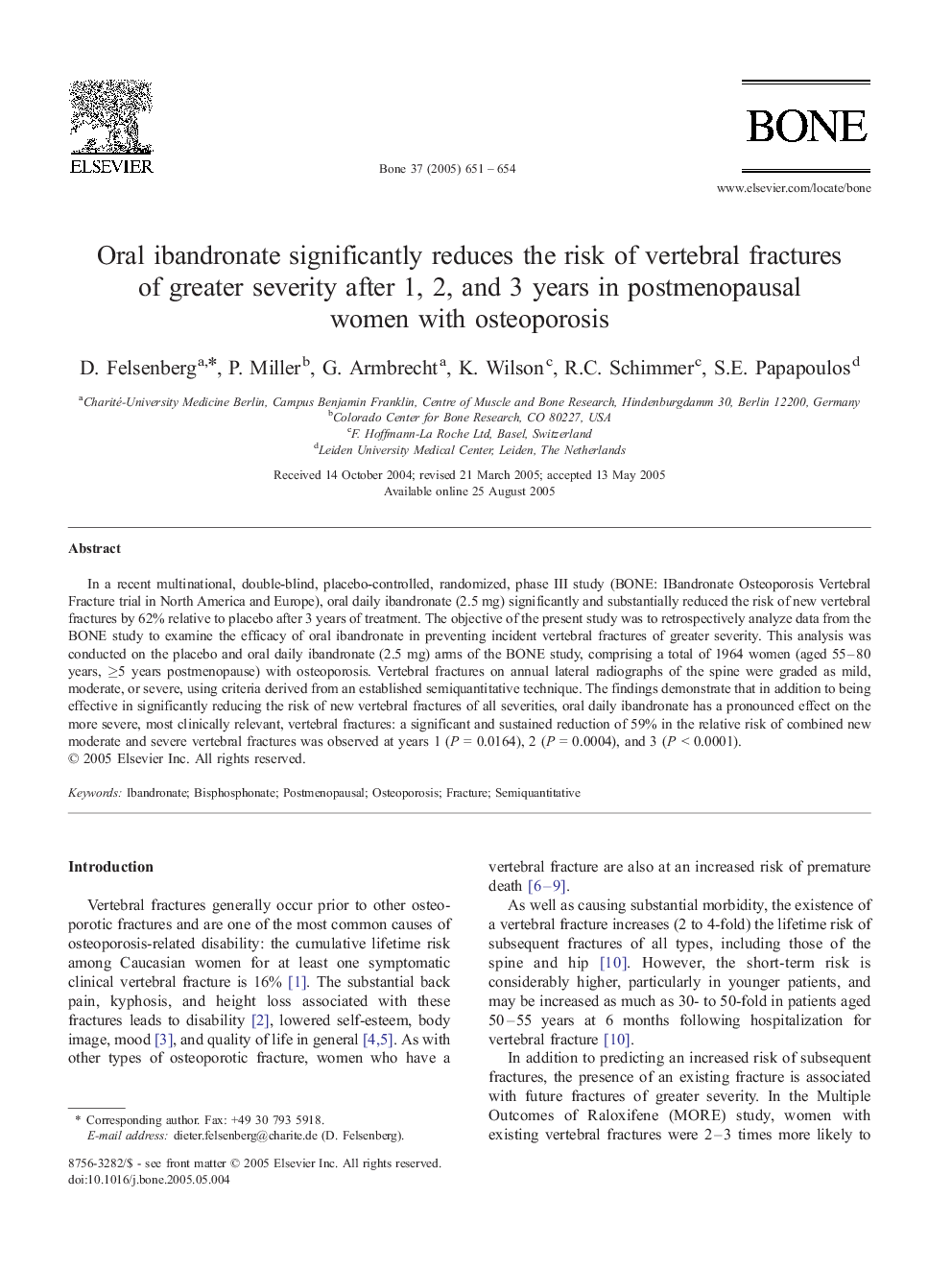| Article ID | Journal | Published Year | Pages | File Type |
|---|---|---|---|---|
| 9104388 | Bone | 2005 | 4 Pages |
Abstract
In a recent multinational, double-blind, placebo-controlled, randomized, phase III study (BONE: IBandronate Osteoporosis Vertebral Fracture trial in North America and Europe), oral daily ibandronate (2.5 mg) significantly and substantially reduced the risk of new vertebral fractures by 62% relative to placebo after 3 years of treatment. The objective of the present study was to retrospectively analyze data from the BONE study to examine the efficacy of oral ibandronate in preventing incident vertebral fractures of greater severity. This analysis was conducted on the placebo and oral daily ibandronate (2.5 mg) arms of the BONE study, comprising a total of 1964 women (aged 55-80 years, â¥5 years postmenopause) with osteoporosis. Vertebral fractures on annual lateral radiographs of the spine were graded as mild, moderate, or severe, using criteria derived from an established semiquantitative technique. The findings demonstrate that in addition to being effective in significantly reducing the risk of new vertebral fractures of all severities, oral daily ibandronate has a pronounced effect on the more severe, most clinically relevant, vertebral fractures: a significant and sustained reduction of 59% in the relative risk of combined new moderate and severe vertebral fractures was observed at years 1 (P = 0.0164), 2 (P = 0.0004), and 3 (P < 0.0001).
Related Topics
Life Sciences
Biochemistry, Genetics and Molecular Biology
Developmental Biology
Authors
D. Felsenberg, P. Miller, G. Armbrecht, K. Wilson, R.C. Schimmer, S.E. Papapoulos,
